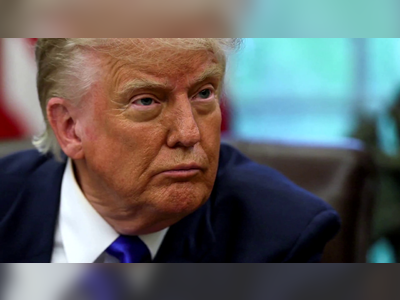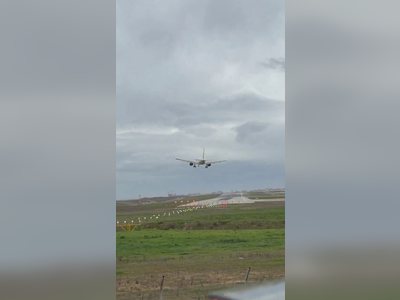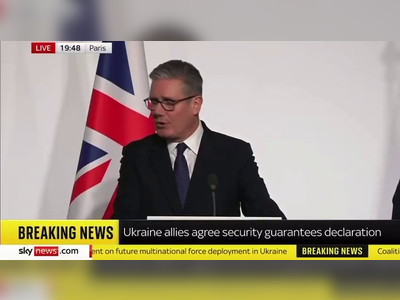Nepal Embraces China's Belt and Road Initiative: A New Geopolitical Battleground?
As Nepal formalizes its participation in China's Belt and Road Initiative, New Delhi watches with apprehension amidst growing regional complexities.
Nepal's recent accord with China marks a pivotal shift in South Asia's geopolitics, signaling Kathmandu's full embrace of Beijing's ambitious Belt and Road Initiative (BRI).
Seven years after initial discussions, the signing of a formal framework agreement in Beijing solidifies China's expanding influence in the Himalayan nation, much to New Delhi's chagrin.
Departing from the traditional diplomatic protocol for Nepalese prime ministers to prioritize India in their foreign visits, Prime Minister KP Sharma Oli has opted to fortify ties with China.
His visit to China, culminating in the agreement with President Xi Jinping, underscores a significant pivot towards Beijing, as Nepal seeks to capitalize on China's sprawling infrastructure ambitions.
While Nepal's foreign office has confirmed the signing of the BRI framework, details remain under wraps.
Sources suggest the deal includes joint planning and coordination for future infrastructure projects, with China funding and determining the financial mechanics, potentially escalating Nepal's exposure to China's "debt diplomacy." This strategy has resulted in economic overreach in other countries, raising alarms about Beijing's intentions and disregard for national sovereignty.
This latest development rekindles long-standing fears of debt entanglement.
Within PM Oli's government, a heated debate persists over the prudence of engaging in large-scale projects funded by Chinese loans.
Nepal Congress, an essential coalition partner, has vehemently opposed such funding, pointing to the Pokhara airport project as a cautionary tale.
China's loan of over two hundred million dollars for the airport has not met expected returns and has faced operational challenges, partly due to India's strategic airspace restrictions driven by security concerns over potential Chinese military exploitation.
Pokhara's location, mere minutes from the Indian border by air, has led to a tightening of Indian airspace—a stark reminder of the strategic implications of infrastructure projects under China's aegis.
With Nepal seemingly on the cusp of deeper integration into the BRI, the balance of power in South Asia hangs in the balance, as New Delhi seeks to navigate the emerging complexities of Sino-Nepalese relations.
Seven years after initial discussions, the signing of a formal framework agreement in Beijing solidifies China's expanding influence in the Himalayan nation, much to New Delhi's chagrin.
Departing from the traditional diplomatic protocol for Nepalese prime ministers to prioritize India in their foreign visits, Prime Minister KP Sharma Oli has opted to fortify ties with China.
His visit to China, culminating in the agreement with President Xi Jinping, underscores a significant pivot towards Beijing, as Nepal seeks to capitalize on China's sprawling infrastructure ambitions.
While Nepal's foreign office has confirmed the signing of the BRI framework, details remain under wraps.
Sources suggest the deal includes joint planning and coordination for future infrastructure projects, with China funding and determining the financial mechanics, potentially escalating Nepal's exposure to China's "debt diplomacy." This strategy has resulted in economic overreach in other countries, raising alarms about Beijing's intentions and disregard for national sovereignty.
This latest development rekindles long-standing fears of debt entanglement.
Within PM Oli's government, a heated debate persists over the prudence of engaging in large-scale projects funded by Chinese loans.
Nepal Congress, an essential coalition partner, has vehemently opposed such funding, pointing to the Pokhara airport project as a cautionary tale.
China's loan of over two hundred million dollars for the airport has not met expected returns and has faced operational challenges, partly due to India's strategic airspace restrictions driven by security concerns over potential Chinese military exploitation.
Pokhara's location, mere minutes from the Indian border by air, has led to a tightening of Indian airspace—a stark reminder of the strategic implications of infrastructure projects under China's aegis.
With Nepal seemingly on the cusp of deeper integration into the BRI, the balance of power in South Asia hangs in the balance, as New Delhi seeks to navigate the emerging complexities of Sino-Nepalese relations.
AI Disclaimer: An advanced artificial intelligence (AI) system generated the content of this page on its own. This innovative technology conducts extensive research from a variety of reliable sources, performs rigorous fact-checking and verification, cleans up and balances biased or manipulated content, and presents a minimal factual summary that is just enough yet essential for you to function as an informed and educated citizen. Please keep in mind, however, that this system is an evolving technology, and as a result, the article may contain accidental inaccuracies or errors. We urge you to help us improve our site by reporting any inaccuracies you find using the "Contact Us" link at the bottom of this page. Your helpful feedback helps us improve our system and deliver more precise content. When you find an article of interest here, please look for the full and extensive coverage of this topic in traditional news sources, as they are written by professional journalists that we try to support, not replace. We appreciate your understanding and assistance.











